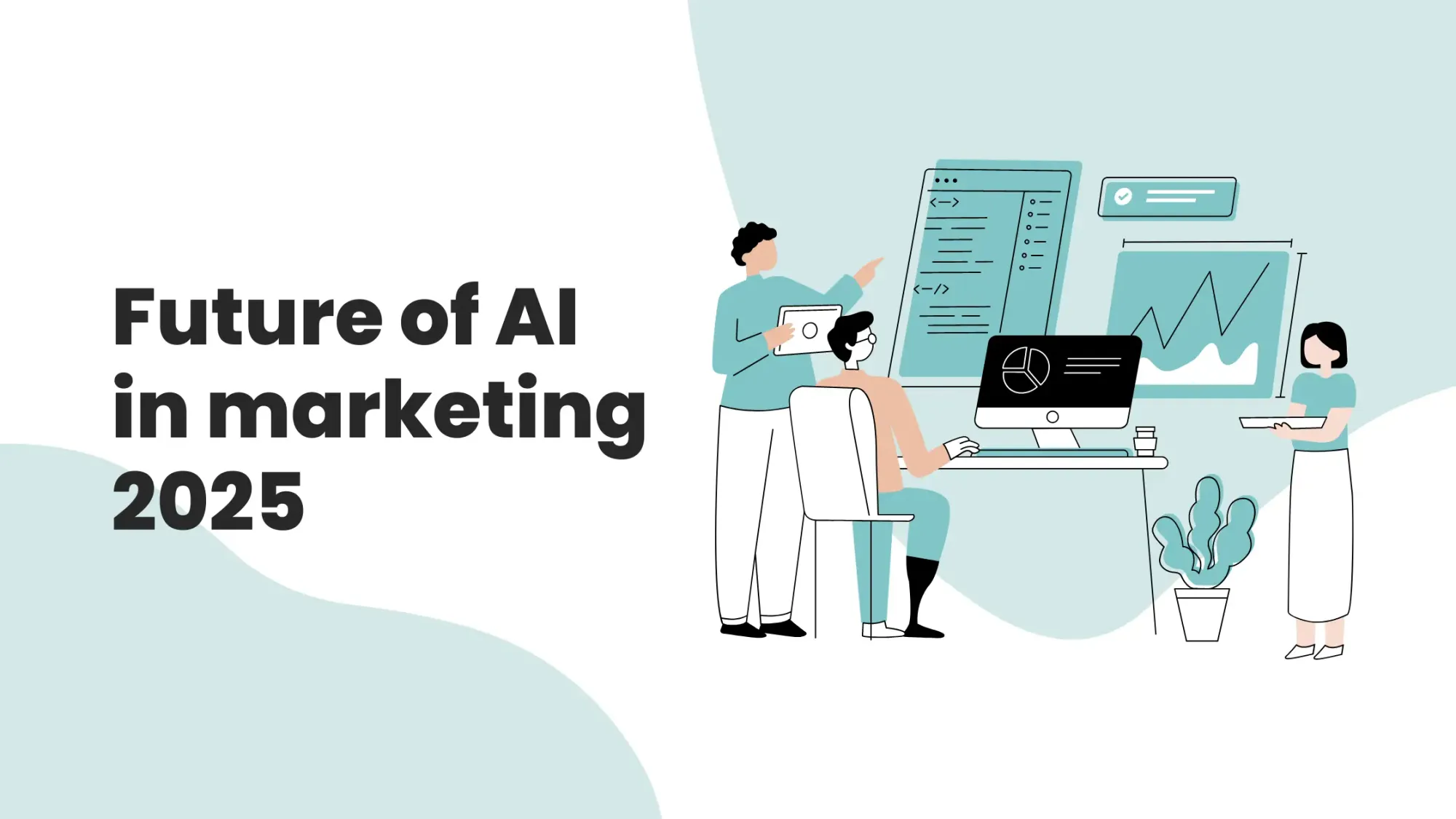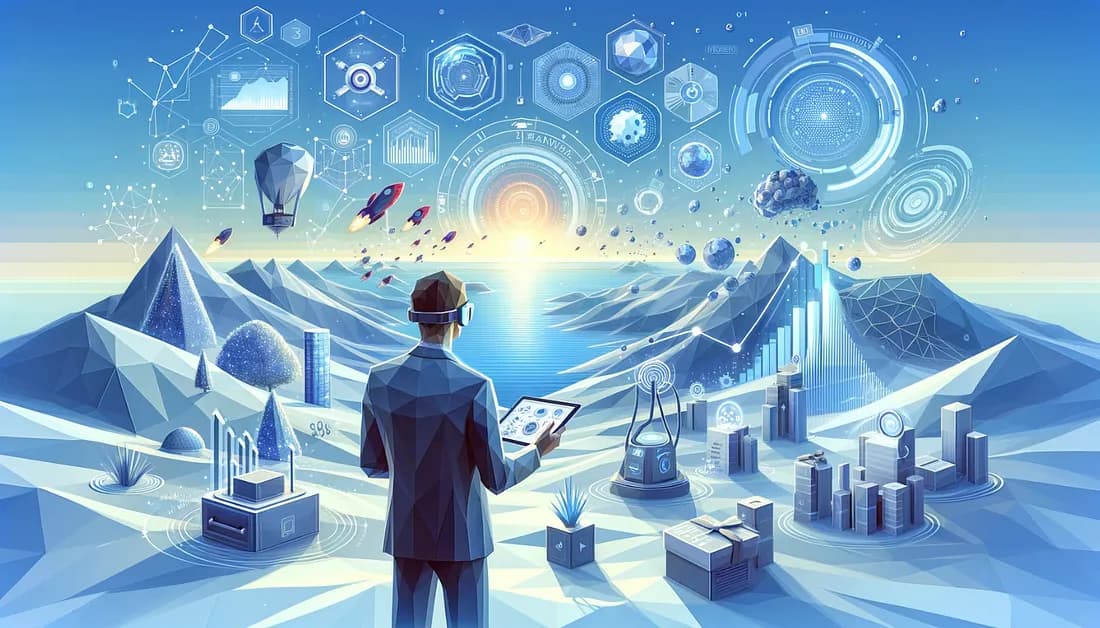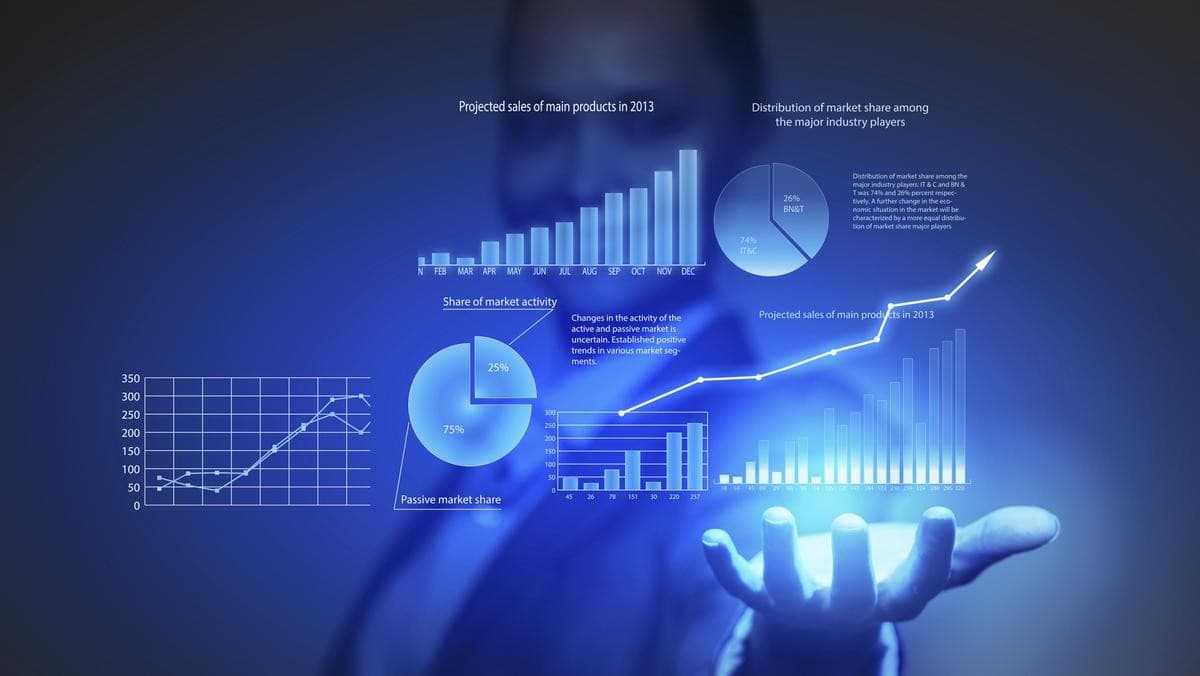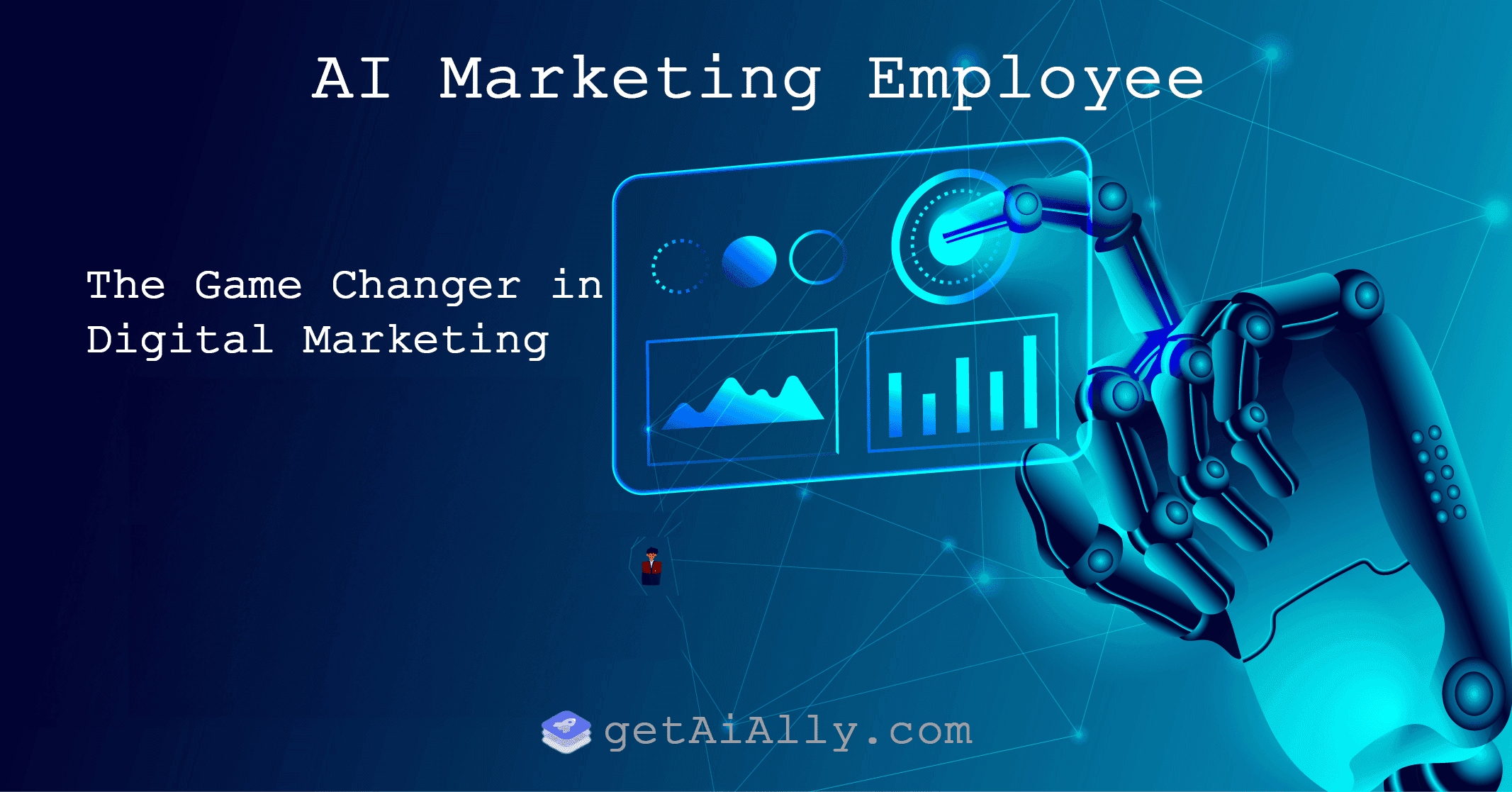The Future of AI Marketing: Technology Trends and Industry Transformation

Lawrence Liu
9/8/2024

Welcome to our series of articles on AI marketing employees. This series will delve deep into how AI is fundamentally changing the digital marketing landscape, providing you with comprehensive insights and practical guides. Here's the complete table of contents:
- AI Marketing Employee: The Game Changer in Digital Marketing
- AI Marketing Employee: A New Paradigm for Data-Driven Decision Making
- 24/7 Marketing: How AI is Reshaping Marketing Efficiency
- AI-Driven Personalized Marketing: Redefining Customer Experience
- AI Marketing Employee's Omnichannel Advantage: Data-Driven Multi-Channel Integration
- ROI of AI Marketing Employees: In-Depth Cost-Benefit Analysis
- Embracing the New Era of AI Marketing: Implementation Strategies and Best Practices
- The Future of AI Marketing: Technology Trends and Industry Transformation
In the digital wave, AI marketing employees have become a key force in changing the marketing landscape. But this is just the beginning. As technology rapidly advances and markets constantly change, how will the future of AI marketing evolve? This article will take you on an in-depth exploration of future trends in AI marketing, analyzing upcoming technological breakthroughs and how these changes will reshape the entire marketing industry.
Cutting-edge Technology Trends: The Next Breakthrough in AI Marketing
The rapid development of AI technology is constantly expanding the boundaries of marketing possibilities. Let's explore several cutting-edge technology trends that could fundamentally change the marketing landscape.
Reinforcement Learning: A New Realm of Autonomous Decision-Making
Reinforcement Learning, as a branch of machine learning, is bringing revolutionary changes to AI marketing employees. It enables AI to optimize decisions through continuous trial and feedback, similar to the human learning process.
In the marketing field, the application prospects of reinforcement learning are broad:
- Dynamic Pricing Optimization: AI can adjust product prices in real-time, maximizing profits based on factors such as market demand, competitor strategies, and inventory levels.
- Personalized User Journeys: AI can design unique marketing interaction sequences for each user, continuously optimizing to improve conversion rates.
- Advertising Placement Strategies: AI can autonomously learn the best advertising placement strategies, including target audience, placement timing, and budget allocation.
Imagine future AI marketing employees being able to make flexible decisions based on complex market conditions like experienced marketing experts, and continuously learn and improve from the results. This will greatly enhance the efficiency and effectiveness of marketing campaigns.
Natural Language Processing: Human-Machine Interaction Beyond Imagination
Advancements in Natural Language Processing (NLP) technology are fundamentally changing the way AI interacts with humans. Future AI marketing employees will be able to communicate more naturally and emotionally with customers and team members.
The application of NLP in marketing will become more extensive and in-depth:
- Ultra-personalized Content Generation: AI will be able to generate highly personalized marketing copy, not only considering user preferences but also mimicking specific writing styles and brand tones.
- Emotionally Intelligent Customer Service: AI customer service will be able to accurately identify and respond to customers' emotional states, providing a more empathetic service experience.
- Real-time Market Insights: AI will be able to analyze massive amounts of social media conversations, comments, and reviews, providing real-time insights into market sentiment and trends.
For example, an AI marketing employee for a fashion brand might work like this: It analyzes the latest social media trends and discovers a new aesthetic trend is emerging. It then automatically generates a series of product design suggestions that align with this aesthetic and creates a batch of fashion-forward marketing copy. This content not only reflects current trends but also perfectly fits the brand's unique style.
Augmented Reality and Virtual Reality: Immersive Marketing Experiences
Augmented Reality (AR) and Virtual Reality (VR) technologies are creating entirely new possibilities for marketing. As these technologies mature and become more widespread, we will see more immersive and interactive marketing experiences.
The applications of AR and VR in marketing will become more common and diverse:
- Virtual Product Trials: Consumers can "try" products at home through AR technology, such as virtual clothing try-ons or furniture placement.
- Immersive Brand Experiences: Brands can create virtual worlds allowing consumers to deeply experience brand culture and values.
- Interactive Advertisements: AR ads will allow users to interact directly with ad content, providing deeper product information.
Imagine in the future, an AI marketing employee might work like this: It analyzes a user's interests and behaviors to create a personalized VR brand experience. When the user puts on the VR device, it's like entering a virtual store tailored just for them, with each product display and promotional information carefully designed based on their preferences. The AI would also analyze the user's behavior in the virtual environment in real-time, continuously optimizing the experience and providing personalized recommendations.
This chart shows the main technology trends in AI marketing and their potential impacts. It visually presents how technologies like reinforcement learning, NLP, AR/VR are integrated into the future marketing ecosystem, helping readers comprehensively grasp the technological development direction of AI marketing.
Industry Ecosystem Restructuring: AI-Driven New Marketing Landscape
With the deep application of AI technology, the entire marketing industry ecosystem is undergoing profound changes. These changes not only affect marketing strategies and execution methods but also reshape the industry's organizational structure and value chain.
Redefining Marketing Roles
The widespread application of AI will drive major shifts in marketing roles:
- Data Scientists Become Core: Professionals proficient in data analysis and AI technology will become core members of marketing teams.
- Fusion of Creativity and Technology: Traditional creative roles will increasingly combine with technology, giving rise to new positions like "AI Creative Director."
- Rise of Strategists: As daily tasks become automated, marketers will focus more on high-level strategy formulation and innovative thinking.
For example, future marketing teams might include role combinations like this: AI Strategy Specialists responsible for designing and optimizing AI marketing systems; Creative Technologists responsible for translating creative ideas into AI-executable parameters; Data Ethics Officers ensuring AI marketing campaigns comply with ethical and legal standards.
Balance Between Personalization and Privacy
As AI makes hyper-personalization possible, privacy protection will become a more prominent issue:
- Transparency Becomes Key: Brands will need to be more transparent about their data collection and usage practices.
- Enhanced User Control: Consumers will have more tools to manage their own data and personalization preferences.
- Privacy-Friendly AI: Development of AI technologies that can provide personalized services without accessing raw personal data.
In the future, we might see scenarios where users can manage their data sharing preferences through a centralized platform. AI marketing systems would follow these preferences in real-time, providing personalized experiences while strictly protecting user privacy.
Real-time Marketing Becomes the New Normal
AI's real-time processing capabilities will make marketing more dynamic and immediate:
- Instant Reactions: Brands will be able to react instantly to trending topics on social media.
- Dynamic Content Optimization: Web content, ad copy, etc., will be dynamically adjusted based on real-time data.
- Predictive Marketing: AI will be able to predict upcoming trends, allowing brands to prepare in advance.
Imagine, after a sudden social event occurs, an AI marketing employee immediately analyzes the potential impact of the event on the brand, generates appropriate response content within minutes, and publishes it through the most suitable channel at the optimal time. This real-time marketing capability will become key to brand differentiation.
Ecosystem Restructuring
AI will drive the restructuring of the entire marketing ecosystem:
- Platform Integration: Various marketing tools and platforms will be more tightly integrated, forming AI-driven one-stop marketing solutions.
- Data Sharing Networks: Different brands and platforms may form secure data sharing networks, enabling full utilization of data while protecting privacy.
- New Service Providers: New types of service providers focusing on specific areas such as AI marketing model training and data cleansing will emerge.
This ecosystem restructuring will provide brands with more powerful and flexible marketing capabilities while potentially changing the current competitive landscape.
Conclusion: Embrace Change, Lead the Future
AI is reshaping the future of marketing at an unprecedented speed. From technological breakthroughs to industry ecosystem restructuring, we are standing at the threshold of a new era full of opportunities and challenges. For marketing practitioners and business decision-makers, understanding and embracing these changes is crucial.
However, while embracing the opportunities brought by AI, we cannot ignore potential risks and challenges. Ethical issues, data security, technological dependence, etc., all need our serious consideration and proper response. Future success will belong to enterprises that can find a balance between technological innovation and humanistic care.
The future of AI marketing is full of infinite possibilities. It will not only change our way of working but also redefine the relationship between brands and consumers. In this exciting new era, maintaining an open and learning mindset, continuous innovation and adaptation will be a must for every marketing professional.
Let's join hands to welcome this new AI-driven marketing era and create a smarter, more effective, and more human-centric marketing future together!
Related Posts

AI-Driven Personalized Marketing: Redefining the New Paradigm of Customer Experience
Dive deep into how AI marketing employees are revolutionizing personalized marketing strategies. From precise customer profile construction to dynamic content generation, understand how AI creates unprecedented personalized customer experiences.

AI Marketing Employee: A New Paradigm for Data-Driven Decision Making
Explore how AI marketing employees are revolutionizing data processing and analysis. Learn how this groundbreaking technology provides real-time insights, optimizes decision-making processes, and drives precision in marketing strategies.

AI Marketing Employee: The Game Changer in Digital Marketing
Explore how AI marketing employees are revolutionizing the digital marketing landscape. Learn how this groundbreaking technology enhances efficiency, precision, and creates unprecedented value for brands.
